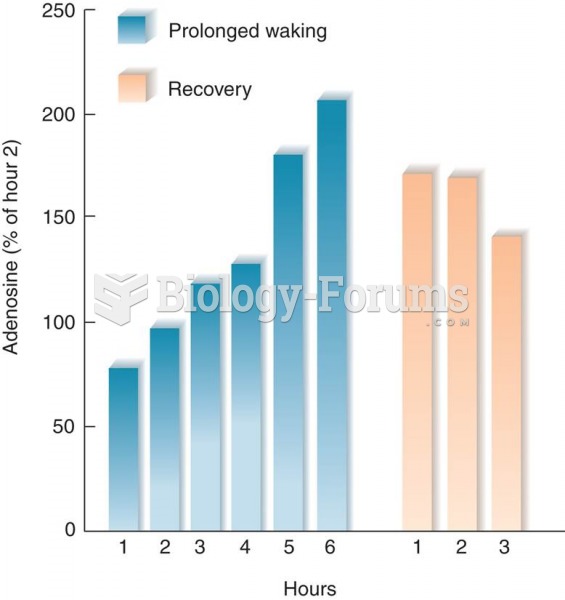|
|
|
The ratio of hydrogen atoms to oxygen in water (H2O) is 2:1.
The first documented use of surgical anesthesia in the United States was in Connecticut in 1844.
As many as 20% of Americans have been infected by the fungus known as Histoplasmosis. While most people are asymptomatic or only have slight symptoms, infection can progress to a rapid and potentially fatal superinfection.
Egg cells are about the size of a grain of sand. They are formed inside of a female's ovaries before she is even born.
About 80% of major fungal systemic infections are due to Candida albicans. Another form, Candida peritonitis, occurs most often in postoperative patients. A rare disease, Candida meningitis, may follow leukemia, kidney transplant, other immunosuppressed factors, or when suffering from Candida septicemia.







